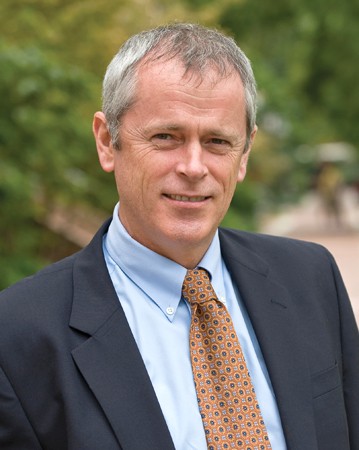Nicholas P. Jones, dean of Johns Hopkins' Whiting School of Engineering, has been named executive vice president and provost at Penn State University.

Image caption: Nicholas P. Jones
The executive vice president and provost is Penn State's chief academic officer, reports directly to the president, and acts as chief executive officer in the absence of the president.
"I know that everyone at Johns Hopkins joins us in offering Nick congratulations and best wishes," President Ronald J. Daniels wrote in an email announcement to the JHU community. "I thank him most sincerely for everything he has done for our university."
Jones will assume his new position July 1. Information on interim leadership at the School of Engineering and the search for Jones' successor will be shared in the near future, Daniels said.
In an email message to School of Engineering faculty and staff, Jones said, "The Whiting School is an extraordinary place, one that I cherish. I draw immense pride from all of your accomplishments and never cease to be impressed by your talent and commitment. Together, we have achieved so much, and I want you to know how grateful I am for the support you have provided over the years."
Jones joined Johns Hopkins as a faculty member in the Department of Civil Engineering in 1986 and was appointed chair of the department in 1999. In 2002, he joined the University of Illinois at Urbana-Champaign to head the Department of Civil and Environmental Engineering and in August 2004 returned to Johns Hopkins to serve as fourth dean of the School of Engineering.
As dean, Jones has overseen a strategic restructuring that has led to gains in enrollment, expanded academic offerings, significant gains in funded research, diversification of the faculty and student body, and the establishment of several institutes focused on interdisciplinary research, among other achievements.
Daniels cited several examples of institutes or programs established at the School of Engineering during Jones' tenure, including the Institute for NanoBioTechnology; the Institute for Computational Medicine; the Laboratory for Computational Sensing and Robotics; the Hopkins Extreme Materials Institute; the Environment, Energy, Sustainability and Health Institute; the Global Water Program; and the Systems Institute.







